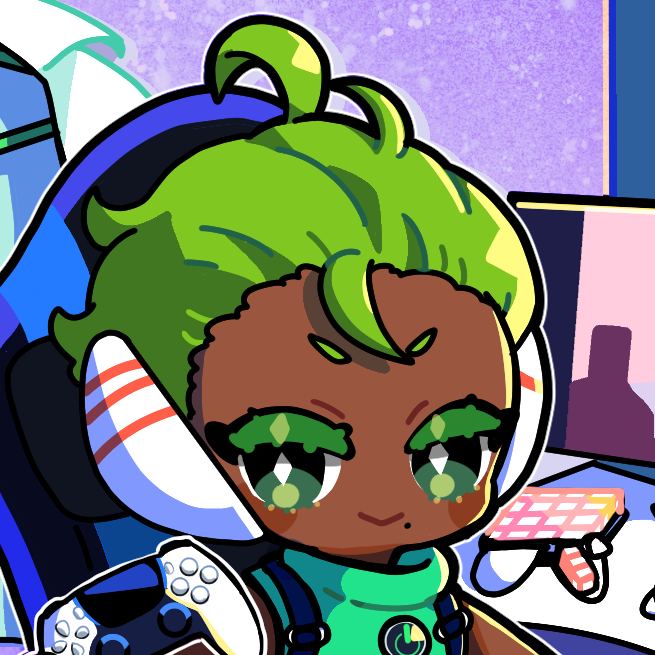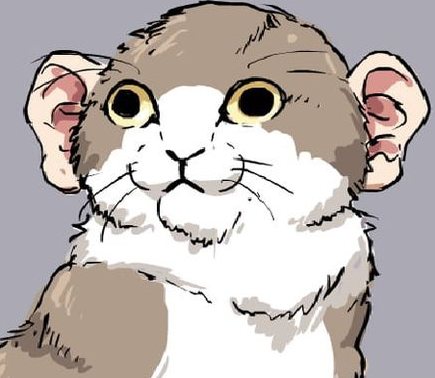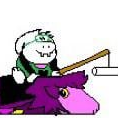interesting article for consideration from Polygon writer Kazuma Hashimoto. here’s the opening:
In February, Final Fantasy 16 producer Naoki Yoshida sat down in an interview with YouTuber SkillUp as part of a tour to promote the next installment in the Final Fantasy series. During the interview, Yoshida expressed his distaste for a term that had effectively become its own subgenre of video game, though not by choice. “For us as Japanese developers, the first time we heard it, it was like a discriminatory term, as though we were being made fun of for creating these games, and so for some developers, the term can be something that will maybe trigger bad feelings because of what it was in the past,” he said. He stated that the first time both he and his contemporaries heard the term, they felt as though it was discriminatory, and that there was a long period of time when it was being used negatively against Japanese-developed games. That term? “JRPG.”
This is a very valid point that I don’t care about Yoshi “Black People can’t exist in FFXVI”-P bringing up lol
Oof. Thanks for mentioning this.
deleted by creator
I have, in fact, talked to people who are insistent that any RPG made in Japan is a JRPG and any game not made in Japan isn’t. They argued that Dark Souls is a JRPG. They were entirely serious.
Dark Souls is a JRPG
Did they also argue that a hot dog is a sandwich?
That would be a ridiculous position to hold.
I hear what they’re saying, but I’ve just never heard of anyone trying to dismiss a game for being a JRPG. Sure, they have their style and tropes, and they aren’t for everyone, but I’ve yet to meet anyone who seriously claims that a particular game is bad because it is a JRPG, as opposed to a game simply being a bad JRPG.
It seems to me that between Sony, Nintendo, From Soft, Bandai Namco, Square Enix, and even, yes, Konami, Japanese gaming culture has had a huge influence on so-called Western gaming culture.
~I’ve just never heard of anyone trying to dismiss a game for being a JRPG~
And I remember the 2000s where that was common among gamer culture. So what now?
A duel to the death, obviously
I have definitely met people who said they didn’t like JRPGs and weren’t interested in trying X new JRPG coming out.
But that is because they didn’t like the genre, not because they had any negative feelings towards Japan or Japanese game devs. Nobody likes every genre, and that is exactly why having genre labels is a good short-hand.
I don’t like FPS games, that doesn’t mean I have any particular ill-will towards people or companies who make them. It doesn’t matter how good a new FPS is, I probably won’t like it.
I dunno I find the JRPG tag akin to the anime tag. If you get down to it anime as a category covers a wide range of genres, art styles, animation styles , and so on. That said there is a DNA throughout that does unite a lot of anime. Series and creators are inspired by other older anime and manga and games and even the non japanese pop culture that influences the creators is filtered by the impact that thing had in Japan.
As a category JRPG used to refer to a very specific story heavy game with turn based combat and usually random battles and leveling up that originates in japan. There are many modern games that have evolved beyond that old school system and look, but the DNA is still there. FFXV despite being open world, having action based combat, and realistic graphics still feels more like a classic final fantasy than it does like Fallout or elders scroll.
I also feel like that there’s a bit of revisionism towards bias against JRPGs. I was chronically online in the 00s on gaming message boards and RPGs were held up as a gold standard among a lot of gamers and I bet even today you’d find quite a few “BEST GAME EVER” lists that would put FFVII and VIII and chrono trigger up there as some of the best of all time.
In the console space at least in the US the default RPG was JRPG for the longest time. There were some western RPGs on consoles but they were few and far between and not nearly as popular. It wasnt until the xbox into the 360 and ps3 gen that C-RPG devs started releasing on consoles. After years of being low sellers on PC this subgenre hit the mainstream and felt like a breath of fresh air especially with this not being the best year for many landmark JRPGs like Final Fantasy.
It is at THIS point in the late 00s into the early to mid 10s that things start getting toxic because gamers are gamers and have abrasive and bad communication skills. I feel like even then these kinds of dickheads werent in a majority and sales of big name Japanese RPGs along side the slow trickle of formerly japan only RPGs like Dragon Quest show that the demand and success is still there. At most there was a brief dip as many Japanese “style” games in general fell out of fashion with western gamers as western devs started getting more and more of the console pie.
I dunno it feels more like there was a blip in sales and the dev is trying to rationalize it as racism based on toxic gamer culture. Which is a fair assumption to make towards gamers but they still sell millions.
I understand his position but at the same time, JRPG does describe an RPG subgenre, just like CRPG or ARPG do. They have specific format, structures and tropes that they all adhere to religiously.
Also not all JRPGs are developed in Japan, and not all RPGs developed in Japan are JRPGs.
It just happened that the subgenre started out in Japan.
While I totally understand this devs point, it’s kinda hard to separate this genre from the name at this point. I’d happily ditch JPRG in a heartbeat but it doesn’t have a good alternative. Turn based doesn’t describe all games that fit in that genre and can be mixed up with card games and such. Calling it a FF or Pokémon clone would be worse imo.
Typically I tend to just skip genres in general for all media. It’s really all fluff and I find the best media tend to blur the line between so many genres that you can’t describe it easily.
I’m not sure I agree, to me the difference between JRPG and RPG is like the difference between anime and animation. In a western audience, the label has been coopted by games closer to home with tropes we’re more familiar with. That doesn’t make the labeling of Japanese media othering in that sense, so much as it allows us to understand what contexts it is both from and for.
I can see how, to some people, it might be a turn-off (just see all the people that turn their nose up at anime conceptually even if they’d like it) – see the people that may have seen edge of tomorrow in theaters and enjoyed it, but would likely sneer at being told to read all you need is kill, differences in media notwithstanding. But as the media landscape changes and grows it’s useful to have different ways to sort of illustrate the differences in audience as well as the differences in creative context.
Not really shocked to read the reaction in these comments.
People always get irate when someone points out that language they’ve been using for a long time is actually inherently problematic and perform all kinds of mental gymnastics to avoid admitting it.
The question is: Are we asked to change it? The quotes hark back to Japanese first impression of the west using the term. They did not state that they want us to use a different term, Yoshi-P recalled his teams impressions of foreign reactions to their products from 20 years ago. The referenced Interview with the Xenoblade Devs also does not echo the Sentiment Yoshi-P put forth. As far as I can see all articles putting JRPG out as a discriminatory term are referencing the same single Interview.
I haven’t really found anything else that touches on it either, but I do still understand the point. The idea that no one else went on record discussing it doesn’t make it a non-issue though.
Yeah… I wasn’t aware of the feeling of the Japanese developers, I grew up using the term, and when I saw and interview and realized how it felt for the developers? Heard that they cringe when they hear it, feel cut out of some game mechanics because of stereotypes, that they feel it means they don’t make “real RPGs”, I decided I was going to drop it.
While I had never said it to hurt anyone, they were hurt none the less.
I’m trying to take it out of my language and there was a time I went around announcing I was a big fan of the genre specifically!
Same honestly, pretty eye opening to how we just flat out miss things like that. I also always loved touting the genre as my favorite. Communication like this is pretty important because it’s a reminder that things which seem innocent could actually be an issue to others.
I find it interesting that this article doesn’t mention any of the Soulsborne games/Elden Ring/Sekiro, despite them ostensibly all being Japanese RPGs.
Because, what no one wants to admit, it was used to specifically call a text heavy game with no skill required. It’s very clear it was used derogatorily when a game the “hardcore’s” likes comes from Japan and you are playing a role and it is lore heavy, “oh but it’s not really a rpg” uh huh…
Honestly feels like a bit of a gross misuse of the word “othering” given what material horrors are associated with the process. Especially bitter coming from Mr Naoki “economics justifies transphobia” Yoshida.
I feel like there’s an important point in the valence of the word shifting as the American games industry and its colluders in the gaming press started trying to cut foreign and indie developers out. I think I completely missed out on the process of the word becoming pejorative, because I was mostly playing Nintendo and retro games during that era and not really talking about them online outside of people that also liked those kinds of games.
I do think it’s interesting and sad though that negative valence can be attached to an entire region, and specifically a region outside “the West”. “Slavjank” would be another example; meanwhile the endless litany of very poor quality games coming out of the UK in the 80’s and 90’s was never given a simple and catchy term…
But that leads to a point that there’s also something to be said that valence can be contextual. “Jank” means different things to different people and can be meant appreciatively or pejoratively.
Within my friends with the same background and from the same (console) generation as me, and who like the same kinds of game as me, there is definitely a subgenre of RPG with a high degree of mechanical depth and novelty, typically made in Japan, that we crave more of; so some kind of catchy subgenre term is useful.
Half serious but I think the real solution is to start describing mechanically over-streamlined Hollywood wannabes as WRPGs.
That’s definitely something to consider. In my head ‘JRPG’ was used in the same vein as ‘manga’ and ‘anime’, where it’s used to group games that share a ton of stylistic choices. Stuff like being particularly plot-heavy, some sort of level progression system that leads to a grind, lots of secrets, intricate combat mechanics.
Didn’t realise there was baggage behind the term for some of the devs. I’m thinking the term ‘JRPG’ doesn’t mean what I think it means - perhaps for a lot of people it just lumps together all RPGs from Japan.
Hard for me to say. And to be honest, it’s been a long time since I exclusively thought about RPGs as a ‘RPG’ vs ‘JRPG’ kind of deal so the term actually hasn’t popped onto my radar unless I’m talking about squeenix/monolith/etc. games.
I respectfully disagree with Yoshida. I never considered JRPG a “discriminatory” or “othering” term. JRPGs have their own style that’s distinct enough to warrant identifying, like the industry distinguishes between “first person shooters” and “third person shooters”. To a non-gamer, the difference may seem trivial, but to people who actually play the game, it’s huge.
That being said, I’m surprised that someone so closely involved with gaming would make such a statement. If anything, it sounds unnecessarily defensive.
This is interesting because I can see where he’s coming from, but like others I see it as more of a distinct genre from Western RPG. There is no general RPG genre which a game can be categorized as to represent “the norm” which jrpgs are aberrant from. That being said, labelling western rpgs and jrpgs doesn’t indicate the design philosophy which is actually indicated by those terms. The west has produced many jrpgs and Japan has produced many western rpgs, and that doesn’t make sense unless you know what those terms actually mean.
I wonder what these genres could be called which would be better indicators? Dragon Quest-likes and Ultima-likes?
I disagree, it’s the same as distinguishing romance novels from other fantasy novels.
















